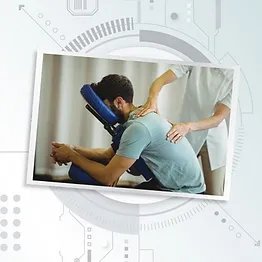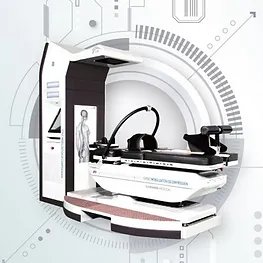Knee Pain
Pain Symptoms
Headache Symptoms
Shoulder & Neck Pain
Spine & Joints
- Disc-herniation
- Scoliosis
- Sciatica
- Back Pain
- Ankylosing Spondylitis
- Osteoporosis
- Pregnancy Pain
- Bone Spur
Upper Limbs
Lower Limbs

Knee pain as a common complaint among adults
Knee joint is the biggest joint of our body and it is a major weight-bearing joint. Because of high mobility level and heavy loading, knee joint is one of the most vulnerable joints to degenerations. Pressure at knee joint when walking stairs is 3 times greater than during level ground walking. Thus, these kinds of activities would induce a great wastage to the knee cartilage.
Swelling and stiff knees
Knee pain can come develop slowly, such as in cases of overuse injuries or underlying conditions such as arthritis, or suddenly from injury. Symptoms of knee injury can include pain, swelling and/or stiffness. Treatment will vary depending on the cause of your knee pain. In some cases, knee pain is the result of an issue with the foot, ankle or hip.
Causes and symptoms of knee pain
- Knee osteoarthritis
Osteoarthritis is also known as degenerative joint disease. Its symptoms include prolonged joint pain, stiffness and swelling in the joints, as well as impaired mobility. Osteoarthritis pain normally occurs in middle-aged people since the cartilage in the knee joint wears away with accumulated use over time. The symptoms of osteoarthritis are different from those of a typical sprain or an acute injury. Patients will experience prolonged knee pain and swelling in the joints. - Injuries or repetitive compression of the knee joints
Including ligament sprain, torn cartilage and tendonitis. - Knee arthritis
If knee pain is caused by arthritis, patients may experience a popping sound in the knees during their activities. Arthritis may even lead to patellar subluxation in the long run, causing more serious and long-term impacts.
Knee pain affects walking, standing and even sleeping
Patients cannot stand or walk for a long time and require extra effort to go up and down stairs. Some patients may also find their pain affecting their quality of sleep and disturbing their lives.
The key to prevention: manage your joints
- Lifting heavy objects in daily life will burden and strain the knees. It is advised to avoid heavy lifting when walking on stairs or slopes and use lifts or elevators instead.
- Excess body weight will exert more pressure on knee joints and accelerate their degeneration, leading to knee pain. Therefore, you should maintain normal body weight.
- Pay attention to correct standing and walking posture to avoid strain
- Wear appropriate shoes. Wearing high heels put more stress on the knee joints and increase the risk of knee sprain in the long run. Yet, if some women cannot avoid wearing high heels due to working needs, they are advised to wear heels under 2 inches. They may also use customised orthotic insoles for ladies’ shoes to reduce the uneven pressure on knee joints.
- Do more strengthening exercises for knee joints and stretch your legs regularly to reduce the pressure on the joints.
Knee pain requires regular treatment
Patients should seek help from a professional therapist to treat osteoarthritis as soon as possible. Knee pain treatment is usually not one-off and requires regular therapies. Therapists will use appropriate and professional techniques to relieve the pain quickly and efficiently in a skilful, convenient and pain-free way. This can also relax the patients’ muscles, stimulate blood circulation, and relieve the symptom of local nerve compression. In addition, to aid cartilage recovery and reduce degeneration, taking glucosamine and chondroitin supplements is also a good choice.
How to relieve knee pain?
Use the RICE (Rest, Ice, Compression, and Elevation)injuries or arthritis. Let your knees take a break from your daily activities to avoid repetitive strain injuries. Cold compresses can help reduce swelling in the joints. Wear knee compression sleeves and keep your knees elevated. Regular exercises such as Tai Chi, yoga and gymnastics can help preserve muscle strength and mobility, which is an effective treatment for arthritis and knee pain.
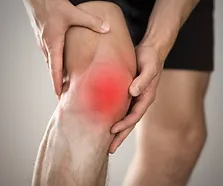
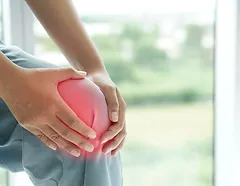
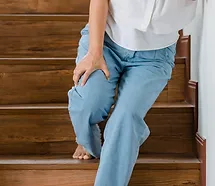
Knee pain FAQ
How to tell if my knee pain is serious?
- Lack of load-bearing capacity, stability or flexibility in the knees
- Apparent swelling in the knees
- Unable to fully flex or extend your knees
- Obvious deformities in the legs or knees
- Redness, pain and swelling in the knees accompanied by fever
Can I walk with knee pain?
Yes. Patients can walk moderately as it brings a light impact on the knees. If you have painful and stiff joints, you can begin with walking for 20 minutes at most every day.
Will knee pain persist for months?
Acute knee pain which occurs suddenly may be caused by injuries or other traumas. If the pain persists for three months, it is regarded as chronic joint pain and requires additional treatment. Patients in this case should seek medical attention immediately.

